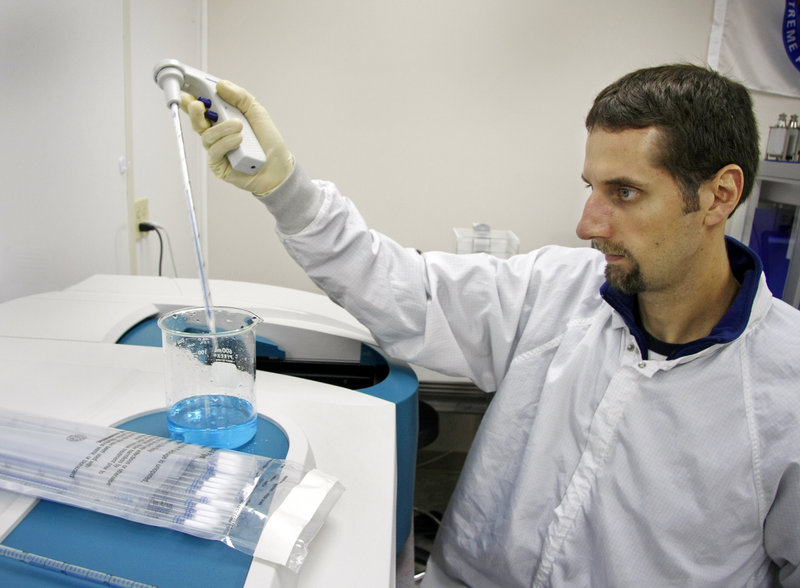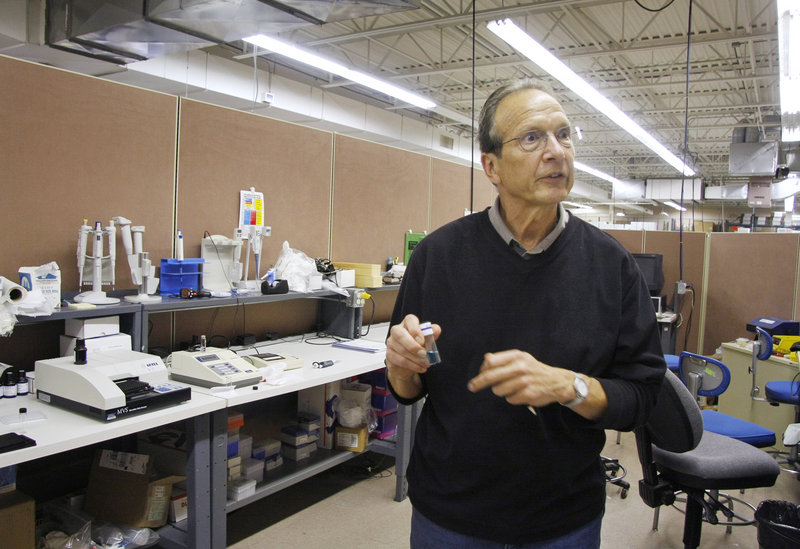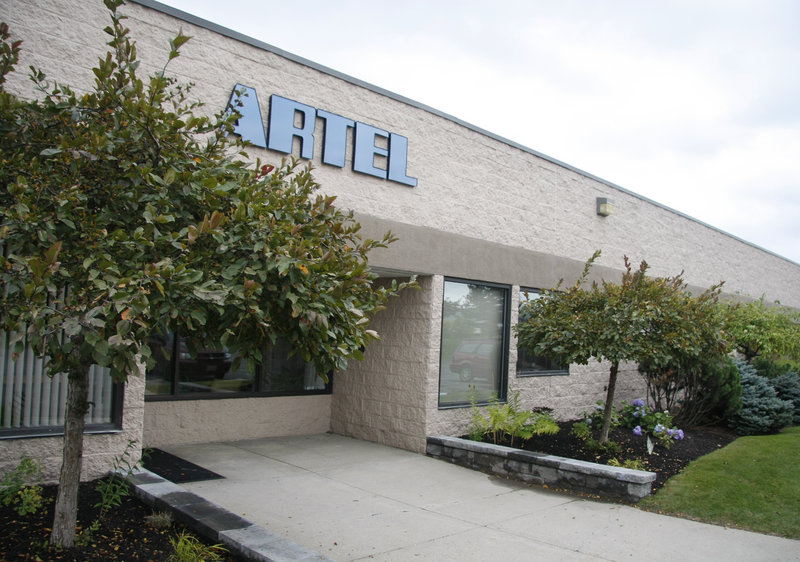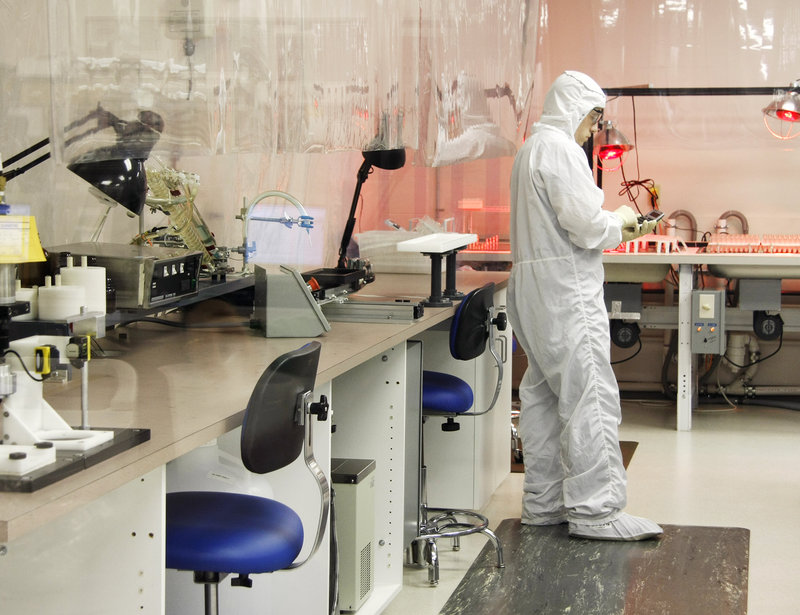WESTBROOK – Artel is a place where machines record weights to tiny fractions of a gram and volumes to a millionth of a liter, where a lab’s temperature and humidity are monitored constantly and a clean room is fed filtered air and entered only by workers wearing head-to-toe coveralls.
That devotion to precision and care, says company president Kirby B. Pilcher, is why he opposes an agreement by his corporate neighbor, Idexx Laboratories, the city and Pike Industries — which operates a quarry a stone’s throw away from Artel — to let Pike blast rock as often as eight times a year.
The agreement, now before a Cumberland County Superior Court judge, would allow Pike to continue to use the quarry and end a lawsuit the company filed against Westbrook, alleging that the city tried to keep it from using the site after allowing it for years.
Idexx, which makes animal diagnostic kits and veterinary practice software, agreed after Pike said it would limit the blasting, cut truck traffic and put in new traffic lanes. And city officials were happy for a resolution after Idexx made noises about leaving the city, taking 1,600 jobs with it, because of the quarry.
But Artel is continuing to fight, telling a judge that it was excluded from the negotiations and might be forced to move if the agreement takes effect. Further hearings on the issue are expected next month.
Pilcher contends that his company was muscled out of consideration because Artel has only about 55 employees, a small number compared with the hundreds at Idexx’s sprawling corporate headquarters just up the street in the Five Star Industrial Park.
“If we had been included and listened to, they wouldn’t have been able to do what they want to do,” he said.
Pilcher is proud of what Artel has built during its 28 years in business, the last 13 in Westbrook, but said its future is threatened by the quarry.
The company stumbled onto a niche in the scientific world 15 years ago, after a joint venture with a Swedish firm to develop in-office blood testing equipment fell through.
The government mandated that the testing would have to be done by people with doctorates, Pilcher said, killing the project just as it was about to be rolled out.
Artel searched for a new business, he said, and people at labs that it worked with on the blood test project suggested Artel come up with a way to calibrate pipettes, the devices that scientists use to dispense precise amounts of liquids in labs.
Pilcher said the labs were looking for ways to reduce the amount of liquid used, and ensuring that the pipettes were precise down to minute volumes was becoming an issue.
Artel uses machines that employ light to measure volume to a millionth of a liter. The liquid to be measured is put in a vial with a predetermined amount of dyed liquid that Artel produces. A beam of light is aimed at the vial and the amount of light that shines through is recorded.
A computer in the Artel machine determines the volume by comparing the amount of light that would shine through the dyed liquid alone and the amount that shines through after the liquid being measured has been added.
Artel sells the machines and the test liquids — Pilcher compares it to selling both razors and replacement blades. The company’s customers range from the FBI and state crime labs to pharmaceutical companies and hospitals.
Pilcher said the company is branching out from calibrating handheld pipettes to testing the accuracy of robotic liquid handling machines that can do hundreds of tests at once.
Pilcher can quantify the direct impact of the blasting that Pike plans. He said the lab would have to close after a blast to re-calibrate instruments, and any material produced that day would probably have to be thrown out. That would cost Artel about $40,000 after each blast, he said.
Pilcher said he can’t quantify how the blasting might rattle his company’s reputation. He noted that industry standards say labs that develop liquid calibration materials shouldn’t be within two miles of an operation that produces ground shaking, such as blasting at a quarry.
One customer in Germany, he said, recently mentioned the controversy with Pike in a discussion with George Rodrigues, Artel’s senior scientific manager, at an international conference.
Although it hasn’t cost Artel any customers yet, he said, he worries that the quarry controversy might cause some to switch to competitors that don’t have operations like Pike near their labs.
Pilcher noted that Rodrigues is due to host a meeting of international experts in a year to work on standards for calibrating the robotic liquid handlers in Westbrook — which would be ironic if Artel is out of compliance with existing standards because of the quarry.
Pilcher said Westbrook officials never mentioned the quarry in 1997, when they wooed Artel from Windham to Westbrook, offering a loan — since paid back — to convert a former printing plant to a high-tech manufacturing facility.
“It wasn’t an issue,” Pilcher said, until Pike started blasting a few years ago.
Pilcher said the business is growing and the company is poised to expand, buying a neighboring building with plans to start filling it with workers and equipment soon. But he’s also positioning his company as a little guy among powerful interests.
“It’s marvelous PR,” he said of the efforts to build support for the Idexx-Pike-Westbrook agreement, “but we’re a small company. We can’t afford a full-page ad.”
Staff Writer Edward D. Murphy can be contacted at 791-6465 or at: emurphy@pressherald.com
Send questions/comments to the editors.







Success. Please wait for the page to reload. If the page does not reload within 5 seconds, please refresh the page.
Enter your email and password to access comments.
Hi, to comment on stories you must . This profile is in addition to your subscription and website login.
Already have a commenting profile? .
Invalid username/password.
Please check your email to confirm and complete your registration.
Only subscribers are eligible to post comments. Please subscribe or login first for digital access. Here’s why.
Use the form below to reset your password. When you've submitted your account email, we will send an email with a reset code.